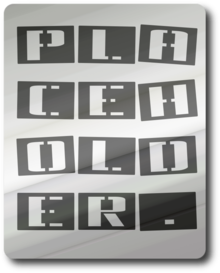
Soldier and sportsman Conn Smythe precipitated a conscription crisis in Canada by writing an open letter to the Prime Minister of Canada decrying the lack of trained troops.
Second World War and the conscription crisis edit
In the Second World War, at age 45, Smythe again served in the Canadian Army. Initially, he was a captain in charge of a troop within the Canadian Officers Training Corps, based at the University of Toronto.[1] In 1941, along with Colonel Richard Greer, he formed the 30th Battery, a sportsmen's anti-aircraft battery that was part of the 7th Toronto Regiment, Royal Canadian Artillery, Canadian Active Army.[2] Smythe was made acting major and Officer Commanding. He was offered a higher rank to become the army's sports officer, but turned it down.[3] After first serving on Vancouver Island to defend against Japanese attack, the Battery embarked in September 1942 to England.[4] After being stationed in England for nearly two years, Smythe and his unit were sent to France in July 1944, where within three weeks he was badly wounded when the Germans bombed an ammunition depot.[5] For the rest of his life he would walk with a limp and suffer bowel and urinary tract problems. He was sent back to Canada in September on a hospital ship.
Smythe, who had seen that the army was using improperly trained troops due to a lack of soldiers, interviewed other soldiers during his time in the hospital, compiling a record over which to confront Mackenzie King. King had developed an official government policy of voluntary service for political reasons and Smythe saw the detrimental effect it had on the Army. Volunteers tried to press home service troops into active service to assist and augment the undermanned troops overseas.[6] From his bed in the Chorley Park Hospital, Smythe dictated a statement to The Globe and Mail newspaper, which printed it on its front page on September 19, 1944:
| “ | The need for trained reinforcement in the Canadian Army is urgent.
During my time in France and in the hospitals of France and England, I was able to discuss the reinforcement situation with officers of units representing every section of Canada. I talked to officers from far Eastern Canada, French Canada, Ontario and all the Western Provinces. They agreed that the reinforcements received now are green, inexperienced and poorly trained. Besides this general statement, specific charges are that many have never thrown a grenade. Practically all have little or no knowledge of the Bren gun and finally, most of them have never seen a Piat anti-tank gun, let alone fired one. These officers are unaniminous in stating that large numbers of unnecessary casualties result from this greenness, both to the rookies and to the other soldiers, who have the added task of trying to look after the newcomers as well as themselves. I give these true facts of the reinforcement situation in the hope that:
|
” |
| — Conn Smythe, in The Globe and Mail[7] | ||
Smythe was accused of acting solely for political gain. The publisher of the Globe and Mail at the time was prominent Conservative George McCullagh, and Smythe was friends with Ontario Conservative Premier George Drew.[8] McCullagh and Drew may have used Smythe for their political ends to defeat King.[9] The issue of lack of reinforcements was well-known within the Army and Smythe did not make any complaints to senior officers while in active service.[9] Despite being criticized, Smythe kept up his public criticism in the newspapers. After James Ralston, Canada's defence minister, traveled to Italy, he saw for himself the shortage of skilled reinforcements. Ralston, who King did not trust, was replaced with Andrew McNaughton, who was against conscription. However, even King saw the need to send troops for the Canadian Army and he ordered 17,500 reserve troops to Europe in November 1944, which started to arrive in January 1945[10]
References edit
- ^ Smythe & Young 1981, p. 141.
- ^ Smythe & Young 1981, p. 142.
- ^ Smythe & Young 1981, p. 143.
- ^ Smythe & Young 1981, pp. 148–149.
- ^ Smythe & Young 1981, pp. 158–159.
- ^ Smythe & Young 1981, pp. 161–165.
- ^ "Untrained Troops Hazard at Front, Smythe Complains". Globe and Mail. Canada. September 19, 1944. p. 1.
- ^ Hunter 1996, p. 397.
- ^ a b Hunter 1996, p. 396.
- ^ Smythe & Young 1981, p. 171.